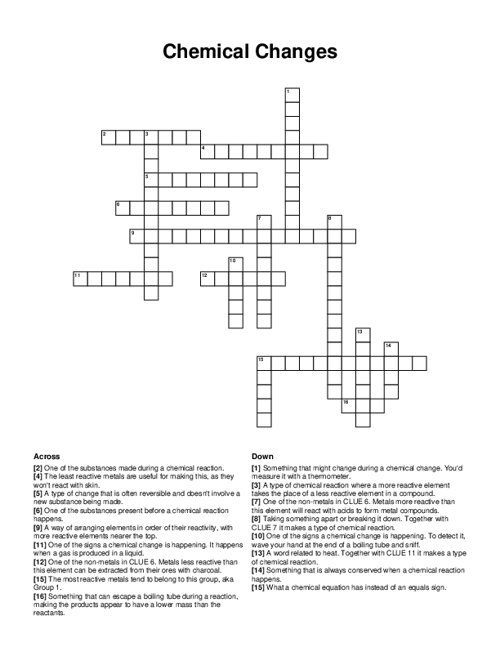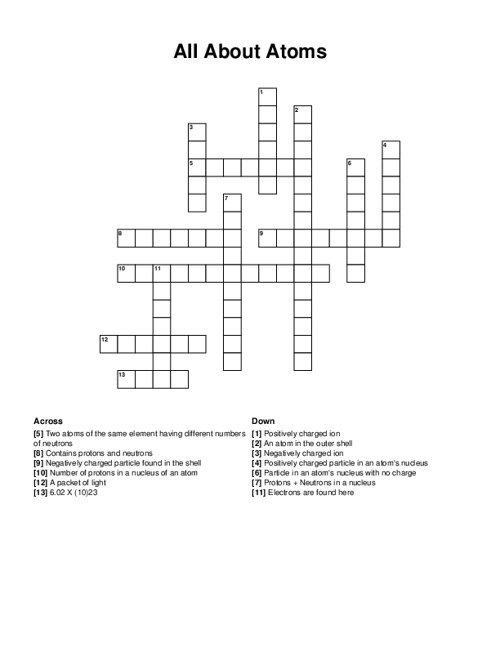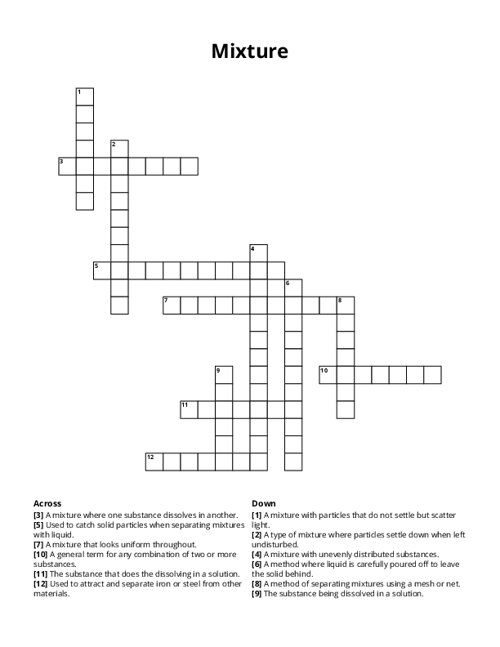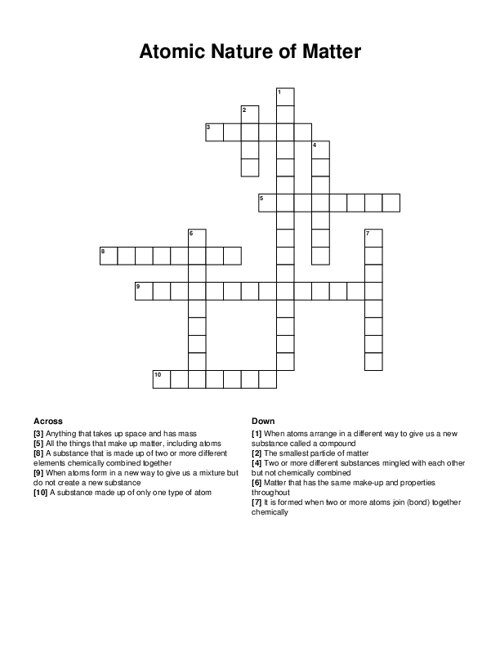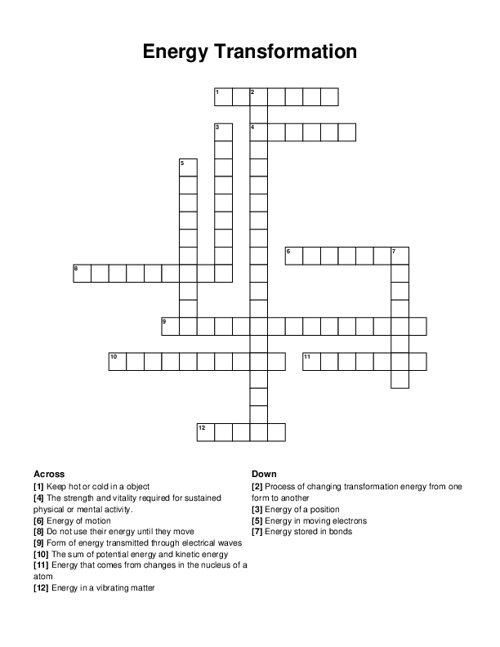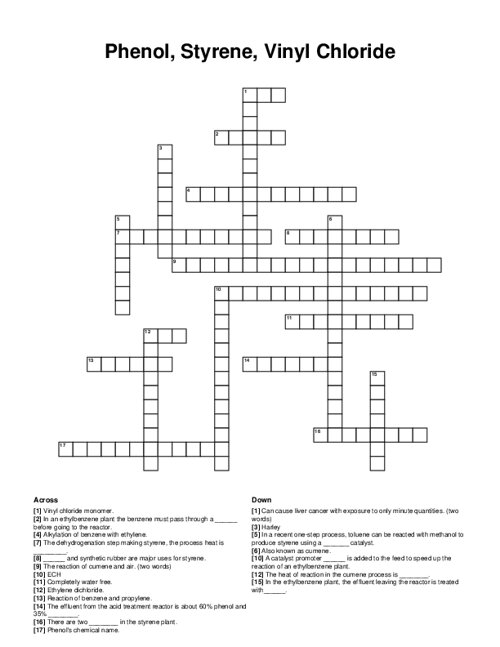Chemical Changes Crossword Puzzle
Download and print this Chemical Changes crossword puzzle.
Related puzzles:
QUESTIONS LIST:
- gas: something that can escape a boiling tube during a reaction, making the products appear to have a lower mass than the reactants.
- thermal: a word related to heat. together with clue 11 it makes a type of chemical reaction.
- decomposition: taking something apart or breaking it down. together with clue 7 it makes a type of chemical reaction.
- displacement: a type of chemical reaction where a more reactive element takes the place of a less reactive element in a compound.
- carbon: one of the non-metals in clue 6. metals less reactive than this element can be extracted from their ores with charcoal.
- hydrogen: one of the non-metals in clue 6. metals more reactive than this element will react with acids to form metal compounds.
- reactivity series: a way of arranging elements in order of their reactivity, with more reactive elements nearer the top.
- jewellery: the least reactive metals are useful for making this, as they won't react with skin.
- alkali metals: the most reactive metals tend to belong to this group, aka group 1.
- fizzing: one of the signs a chemical change is happening. it happens when a gas is produced in a liquid.
- aroma: one of the signs a chemical change is happening. to detect it, wave your hand at the end of a boiling tube and sniff.
- temperature: something that might change during a chemical change. you'd measure it with a thermometer.
- physical: a type of change that is often reversible and doesn't involve a new substance being made.
- arrow: what a chemical equation has instead of an equals sign.
- mass: something that is always conserved when a chemical reaction happens.
- reactant: one of the substances present before a chemical reaction happens.
- product: one of the substances made during a chemical reaction.
